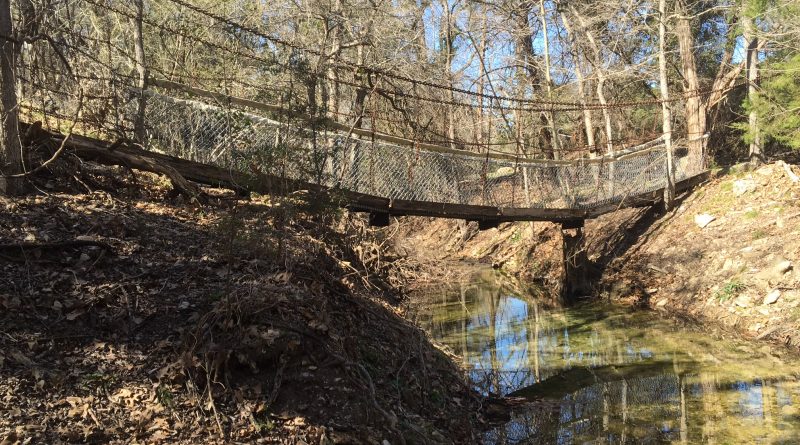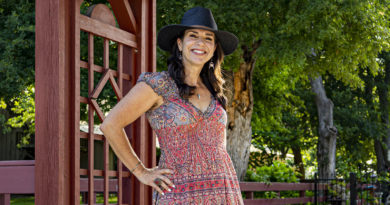Spend a day on a farm for a lifetime of memories
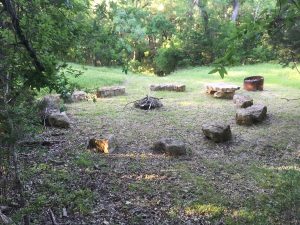 By Janna Zepp | Contributed photos
By Janna Zepp | Contributed photos
Just a 15-minute drive south of Killeen, along the Lampasas River and well off the beaten path of State Highway 195 with directions that include the phrase “turn off the paved road,” sits a farm unlike any other in Central Texas.
Ware’s Wander Woods is a 250-acre farm owned by the Ware family for about 140 years, on which owner and operator Bradley Ware raises chickens and cattle and he grows hay, wheat, clover, and oats. He also keeps 100 beehives, most of which are descended from the original 50 hives his father kept. On certain days five of those acres are dedicated to guest entertainment and education; he raises curiosity about the natural world for school groups and families wanting to experience a day on a farm.
Ware’s has been entertaining visitors for more than 10 years with interesting items and machinery displayed around the site, along with the beautiful natural rock formations and the private views of the Lampasas River. Coupled with Bradley’s own love of a good practical joke and funny stories, visitors are guaranteed an unforgettable experience.
“I’ve got a flying saucer out here. It crashed here last October. Folks got to come out here to see it and hear how it all happened though,” he says, grinning.
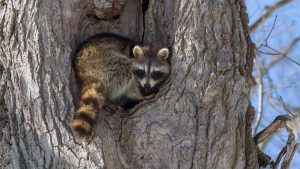 Bradley also has paid detailed attention to showing farm guests native plants, trees, wildlife, insects, and geology. Information boxes scattered about the farm describe what guests can see if they look closely and pay attention.
Bradley also has paid detailed attention to showing farm guests native plants, trees, wildlife, insects, and geology. Information boxes scattered about the farm describe what guests can see if they look closely and pay attention.
The idea for Ware’s Wander Woods came from reading about pumpkin patch farm businesses generating income for small, independently owned farms.
“I read that and thought, ‘I can do that and put my own spin on it,’” Bradley says. “I wanted to make it a little different and really memorable for families and kids. I loved growing up on this farm, being out on it and using my imagination about what might have happened where on it long ago. Why not share that experience with others on my own place?”
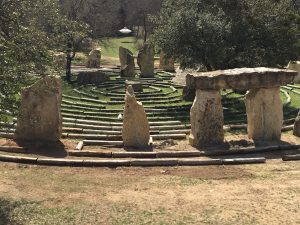 Farmers were the first environmentalists, conservationists, and naturalists. They have learned through trial and error in working in, with, and occasionally against nature that nature often wins and it is best to follow its lead when raising crops and livestock. Bradley says he wants to be able to share some of that understanding of nature with his guests. The bees he keeps are those reclaimed from buildings around the Greater Killeen/Fort Hood area through his bee removal service.
Farmers were the first environmentalists, conservationists, and naturalists. They have learned through trial and error in working in, with, and occasionally against nature that nature often wins and it is best to follow its lead when raising crops and livestock. Bradley says he wants to be able to share some of that understanding of nature with his guests. The bees he keeps are those reclaimed from buildings around the Greater Killeen/Fort Hood area through his bee removal service.
‘Bee-ing’ responsible
Not only does Ware Farm Honey sell local honey, it is in the business of rescuing bees. Bradley Ware operates a bee removal service that focuses on keeping the bees he removes alive and adding them to his honey “production line.” Bradley’s philosophy is that bees are having a hard enough time surviving all of the chemicals used in agriculture today so it’s best to keep as many alive and producing as possible for the benefit of future generations and the environment.
“I think of it as ‘recycling’ the bees because we need them. Too many disappearing now so we got to do something to keep them around,” Bradley says.
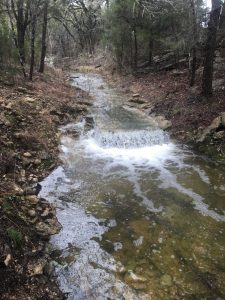 The bees are not available to be seen by guests, but the nature on the farm is.
The bees are not available to be seen by guests, but the nature on the farm is.
“People need to be outside to really know how the world works and why we need to take care of it and small farms like mine,” Bradley says. “I love entertaining people, but I also want them to see what it is like to spend a day outdoors without electronic gadgets and the Internet.”
While the farm animals are not roaming the five-acre space set aside for guests, deer, armadillos, squirrels, possums and other wildlife occasionally show up on their way through the site. The lack of city noise or even road noise is almost deafening and it is easy to forget how close Killeen and Fort Hood actually are to the farm. There is a timeless feel to the place, as if the farm exists in a time between about 1890 and 1950, making it easy to forget the 21st Century.
“I really enjoy hosting people out here and showing people a good time,” Bradley says. “If they learn a little something along the way, that’s even better.”

